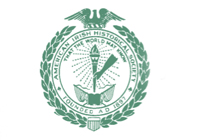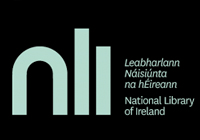
How Martin McGuinness and I worked
together for peace
By Reverend David Latimer
In Spring 2006 David Latimer’s church, First Derry Presbyterian, was paint bombed yet again. David’s normal reaction was to keep his head down and say nothing, but this time he decided to go public about the attacks. Live on Radio Foyle he appealed to Martin McGuinness to help, believing that he was the only man in the city who could protect the church.
Little did David expect that Martin McGuinness would be at the church within a few hours, and that this first meeting would mark the beginning of a remarkable relationship that evolved and developed over the next eleven years.
In A Leap of Faith, David tells how that meeting led to a strong and lasting friendship that was as close as it was unexpected, and that was cemented by their joint commitment to peaceIn building and improving the lives of Northern Ireland’s young people.
Covering a series of key events – including David’s speech at the Sinn Féin Ard Fheis, Martin McGuinness’s handshake with the Queen and their joint work for peace in Derry – this timely, heartfelt and moving book tells the inspiring story of a friendship that had lasting impact in Derry and beyond.
978-1-78073-180-3
November 7, 2018, Hardback, 160 pages, Memoir
Buy Book Here
Barnes and Noble
Amazon
Author: Presbyterian Minister, David Latimer
MARTIN McGUINNESS: SOME OBSERVATIONS
More than two years after his death I continue to miss Sinn Féin’s Vice President, and former deputy First Minister of Northern Ireland, Martin McGuinness MLA, who was a frequent visitor to my home for over a decade.
Never in my wildest dreams would I have imagined being in the company of the feared IRA commander. Equally, it would have been unthinkable for Martin McGuinness, even a handful of years ago, to have contemplated drinking tea and relaxing with a former British Army chaplain and Presbyterian minister. The two of us agreeing to meet up and becoming firm friends eloquently reveals how likes and dislikes do not forever remain the same. A quotation attributed to Vincent van Gogh says, ‘in spite of us, and without our permission, there comes an end to the bitter frosts. One morning the wind turns and there is a thaw.’ And this is precisely how it was for Martin and me.
Not everybody liked the friendship that progressively evolved between the two of us but we were not deterred in doing what, deep down, we both knew we needed to do and that was to reach out to one another. It has been wisely said that when the music changes you need to learn new dance steps otherwise you’ll be left sitting on the sidelines. To the disapproval of many in the Protestant, Loyalist and Unionist, and the Catholic, Nationalist and Republican circles, and despite stiff criticism and strong opposition, we did not deviate from the path we walked together, nor did we look back or think of stopping. Instead we kept steadfastly moving forward knowing that the battle of good to overcome evil had already been won. Our task was to clothe ourselves in the work of love and to embed both our city and country with goodness. Like former Civil Rights leader and current Congressman John Lewis, Martin and I were persuaded beyond all reasonable doubt that ‘if you shine like a beacon for all to see then the poetry of all the great dreamers and philosophers is ours to manifest in a nation, a world community, and a Beloved Community that is finally at peace with itself.’
A beautiful friendship that began in 2006 amazingly continues with Martin’s wife, Bernie, his sons Emmett and Fiachra, and his daughters Fionnuala and Grainne. When I first thought of recording the story of my journey with Martin, to somehow help shape a brighter future, I arranged to visit Bernie to share some embryonic ideas. Bernie was instantly supportive. This, by itself, was significant. Two aims motivated me to write a book entitled A Leap of Faith, articulating details of my friendship with Martin. The first was to provide intriguing and hitherto unknown insights about the man I had gotten to know and to like. The second was to raise funds for Derry’s new Cancer Centre where Martin had received treatment for amyloidosis. All royalties from sales of the book are, therefore, being donated to the centre.
Evidence of the admiration and respect Martin McGuinness enjoyed far beyond Ireland’s borders resides in the quite unique endorsement provided by President Bill Clinton who, like Martin, was a principal architect of Northern Ireland’s Good Friday Agreement. The bond of friendship between the two of them was such that the 42nd President of the United States of America travelled all the way to Derry to attend Martin’s funeral and in his eulogy encouraged all of us ‘to go and finish the work he started.’
Dáil Éireann’s (the Assembly of Ireland) Ceann Comhairle (Head of the Council or speaker), Seán Ó’Fearghaíl TD, has also gracefully endorsed A Leap of Faith. He writes, ‘the book tells of extending the hand of friendship across a divided, suspicious community at war with itself, even as the larger war was thankfully ebbing to a close. It’s the story of trusting in peace.’
Reflections Coinciding With 2nd Anniversary of Martin's Death
Recently during a visit to Martin McGuinness’ grave in Derry City Cemetery’s Republican plot I observed, for the first time, an inscription at the bottom of his headstone, which reads, ‘we have to govern by treating every single citizen equally.’ Captivated by words that were a perfect fit for the man I knew well, I instantly recalled a similar statement he gave to me for inclusion in a countrywide school peace building project dear to his heart. It reads, ‘I pledge to work tirelessly with everyone to ensure tolerance, equality and mutual respect become a bedrock of a new shared future.’
Remarkably, a moment in time dawned when ‘Óglach Martin McGuinness’ transitioned to devote himself as ‘MP, MLA, Minister’, to toil tirelessly for peace and a brighter and equal future for everyone. And few, if any, could have done it better. Clearly no mountain was too high for him to climb and no valley too deep for him to tunnel through. He was adept in making a way where no way existed because, as a transformed man, he was determined that no one and no condition would ever again pull us so low as to cause us to hate. Having emerged from a dark and desolate midnight, Martin’s guiding star was undeniably the higher principal of love, which he knew was the only sure way to usher people of every creed, class and culture into the bright daylight of equality, fairness and justice.
Reflecting on his unique role as a political leader and peacemaker I’m somewhat saddened by the refusal of some, and the reticence of others, to acknowledge the lengths he was prepared to go to tear down the walls that drive people apart and to build the bridges that drew people together.
On the occasions when we were together in my home, ruminating on the “state of the nation”, it was clear Martin would have welcomed some semblance of reciprocation from Unionists. After all, power-sharing, by definition, is a political arrangement in which different groups take part in government together. This will necessarily entail compromise, co-operation and also some “give and take” if the wellbeing of all the people, and not just some of the people, is to be realised. It is certainly not one group confidently striding out in front with another group limping behind somewhere in the shadows! No mixed gathering of people, whether occupying a sacred or a secular space, could be expected to function indefinitely if tolerance and mutual respect are intentionally absent. Sooner or later that gathering will disintegrate and the shutters will fall, which is similar to what has happened with the devolved Northern Ireland Assembly and Executive at Stormont.
Since his sudden and untimely death in the Spring of 2017 I am often asked by Unionists, Nationalists, Loyalists and Republicans alike, ‘would things be different if Martin were still alive?’ My answer, invariably, is yes, which is not me simply wishing to speak well of the dead or to view my very good friend through rose-tinted spectacles. Quite the contrary. Knowing the man, as well as I did, I am persuaded beyond doubt that he would not have been sitting on his hands or twiddling his thumbs during the past 26 months of political inertia in Northern Ireland. The effectual leader that Martin McGuinness became would, I believe, have somehow found light to shine on the path, enabling all of us to lift up our eyes towards the hills and to keep our feet moving forward.
In a speech given during his 1968 Presidential campaign Robert Kennedy said, ‘some men see things as they are and say, why; I dream things that never were and say, why not.’ Nothing is more appropriate for the man I once described as ‘a true great leader of modern time.’ Martin McGuinness, not content with things as they were, was always prepared to think outside the box, leave his comfort zone and cross over to the other side of the road.
This is precisely what he would be doing if he were with us right now. He is massively missed; civic society is depleted by his absence; the political arena is in free fall without him. Notwithstanding the changing political landscape created by the vagaries of Brexit, the bottom line for all of us, Catholic, Protestant or otherwise, is to move closer to one another and to hold hands, not grudges. We must lift up our faces towards the sun and keep our feet moving forward, walking together and working together until, as Rev Dr King once said, ‘all God’s children ... will rejoice in our common band of humanity in the kingdom of our Lord and of our God.’






